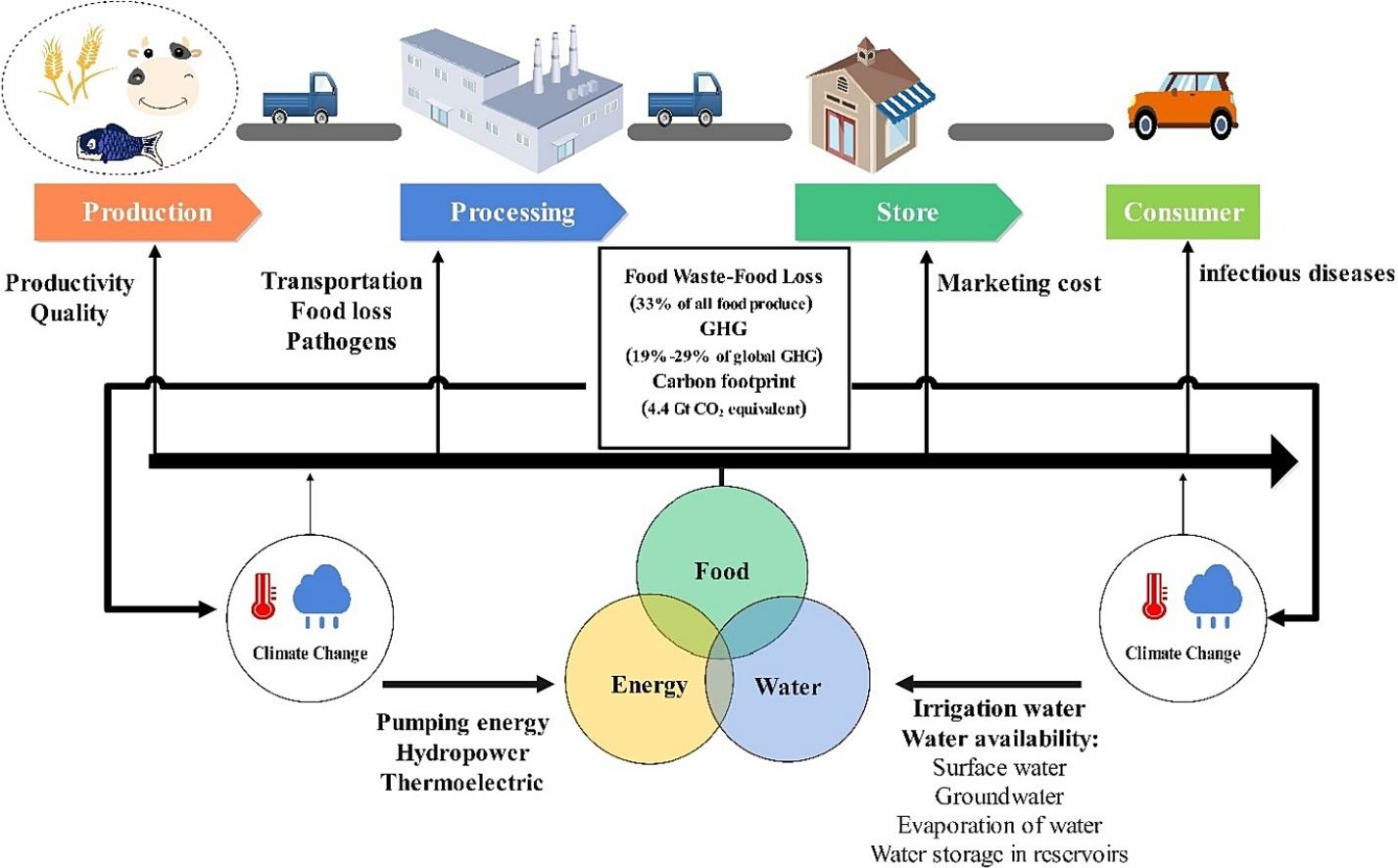February 01, 2024 | Ecological Indicators | Source |
Introduction: Researchers from Agricultural Sciences and National Resources University of Khuzestan and Shiraz University in Iran delved into the intricate connections between water, energy, food, environment, climate change, and the sustainability of the food supply chain (FSC). By conducting a systematic literature review and categorizing 96 articles into four main groups—water and FSC, energy and FSC, water and energy in the FSC, and climate/environment and FSC—the study identifies key interrelationships and their impacts on FSC sustainability.
Key findings: Water scarcity, energy consumption, and climate change pose significant challenges to the FSC, affecting production, processing, distribution, and consumption stages. Various strategies to address these challenges were discussed, such as optimizing water and energy use, reducing food loss and waste, and considering environmental impacts in FSC management.
One of the significant contributions of this research is the development of a comprehensive index, termed the Water-Energy-Food-Environment-Climate change (WEFEC) nexus index, to evaluate the sustainability of the FSC. This index integrates environmental and climatic factors with traditional WEF nexus considerations, providing a holistic approach to assessing FSC sustainability.
Graphical Abstract





